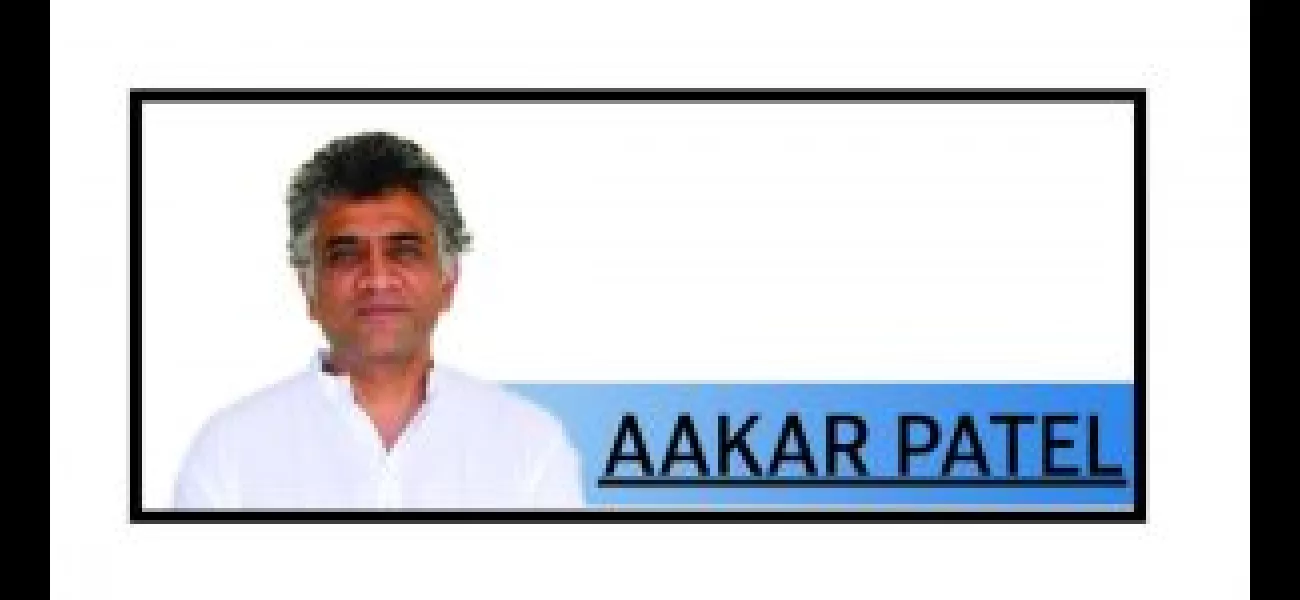Media plays a crucial role in democracy, allowing citizens to stay informed and participate in the political process.
'Godi Media' is a term used to describe Indian media that is closely aligned with the prime minister, whose name rhymes with 'Godi'. This term was coined by journalist Ravish Kumar and was discussed by American scholar Noam Chomsky a few decades ago.
June 23rd 2024.

In 2014, India was introduced to the term 'Godi Media', a phrase coined by the renowned journalist Ravish Kumar, who received the Magsaysay Award for his work. This term refers to media outlets that are closely aligned with the prime minister, whose name happens to rhyme with the word 'Godi'. Interestingly, several decades ago, the American scholar Noam Chomsky wrote about the media in democratic nations and how it lacked true independence. According to him, the media failed to inform the public about the excessive power of the government and instead focused on 'manufacturing consent' in favor of the government and large businesses. Chomsky believed that the media was controlled by powerful ideologies and often acted as a mouthpiece for the government, relying on market forces, self-censorship, and other subtle forms of coercion.
Chomsky further elaborated on the defining features of this media model, which included ownership by corporate interests, dependence on advertising for revenue, limited access for unbiased reporters and anchors, and the suppression of dissenting voices. He also highlighted how this type of media often created distractions and sensationalized stories to divert attention from important issues.
It is evident that these conditions are prevalent in the Indian media landscape, with some aspects being even more pronounced than in Western countries. Surprisingly, the revenues of India's six listed news media companies have not seen any significant growth in the last decade. In fact, when adjusted for inflation, these companies are now half the size they were in 2014. This begs the question - why is the Godi media going against its own self-interest? Not only have they failed to make any profits, but they have also seen a decline in their business.
There are a few reasons for this, as I discovered after speaking to people working in these channels. One of the main reasons is that the nature of media has drastically changed in the last 20 years, with a significant portion of advertising revenue now going to online platforms like Google and Facebook. Additionally, the country's economic state, especially in terms of consumption, has not been favorable, leading to a decrease in overall revenues. These factors have forced media outlets to become dependent on government advertisements, making them hesitant to criticize the government in any way.
Moreover, the fact that many media outlets are now owned by wealthy individuals like Adani and Ambani, for whom the media is just a side business, adds another layer to this complex issue. Moving on to the content of these channels, there is no concrete evidence to suggest that divisive or communal stories receive higher viewership. However, it is often observed that such content does not lead to a decrease in viewership either, indicating that it is acceptable to the audience. In some cases, sensationalizing hate speech has even led to a temporary increase in viewership, as was seen during the COVID-19 pandemic when there were rumors about Muslims intentionally spreading the virus.
Furthermore, the rise of majoritarianism under the current government has given a platform for existing bigotry to be amplified, as seen on many channels. Interestingly, there is no evidence to suggest that supporting the government and attacking the Opposition leads to higher viewership or popularity. This begs the question of why these channels continue to do so, and the answer lies in their motives, which are often influenced by external factors.
As the recent election results have shown, the Opposition can no longer be ignored or attacked in the same manner as before. It will be interesting to see if there will be any change in the behavior of these channels. As a journalist, I have witnessed the decline of Indian journalism during this phase, and I hope that moving forward, we can leave this shameful period behind and work towards a better democracy, politics, and society.
Chomsky further elaborated on the defining features of this media model, which included ownership by corporate interests, dependence on advertising for revenue, limited access for unbiased reporters and anchors, and the suppression of dissenting voices. He also highlighted how this type of media often created distractions and sensationalized stories to divert attention from important issues.
It is evident that these conditions are prevalent in the Indian media landscape, with some aspects being even more pronounced than in Western countries. Surprisingly, the revenues of India's six listed news media companies have not seen any significant growth in the last decade. In fact, when adjusted for inflation, these companies are now half the size they were in 2014. This begs the question - why is the Godi media going against its own self-interest? Not only have they failed to make any profits, but they have also seen a decline in their business.
There are a few reasons for this, as I discovered after speaking to people working in these channels. One of the main reasons is that the nature of media has drastically changed in the last 20 years, with a significant portion of advertising revenue now going to online platforms like Google and Facebook. Additionally, the country's economic state, especially in terms of consumption, has not been favorable, leading to a decrease in overall revenues. These factors have forced media outlets to become dependent on government advertisements, making them hesitant to criticize the government in any way.
Moreover, the fact that many media outlets are now owned by wealthy individuals like Adani and Ambani, for whom the media is just a side business, adds another layer to this complex issue. Moving on to the content of these channels, there is no concrete evidence to suggest that divisive or communal stories receive higher viewership. However, it is often observed that such content does not lead to a decrease in viewership either, indicating that it is acceptable to the audience. In some cases, sensationalizing hate speech has even led to a temporary increase in viewership, as was seen during the COVID-19 pandemic when there were rumors about Muslims intentionally spreading the virus.
Furthermore, the rise of majoritarianism under the current government has given a platform for existing bigotry to be amplified, as seen on many channels. Interestingly, there is no evidence to suggest that supporting the government and attacking the Opposition leads to higher viewership or popularity. This begs the question of why these channels continue to do so, and the answer lies in their motives, which are often influenced by external factors.
As the recent election results have shown, the Opposition can no longer be ignored or attacked in the same manner as before. It will be interesting to see if there will be any change in the behavior of these channels. As a journalist, I have witnessed the decline of Indian journalism during this phase, and I hope that moving forward, we can leave this shameful period behind and work towards a better democracy, politics, and society.
[This article has been trending online recently and has been generated with AI. Your feed is customized.]
[Generative AI is experimental.]
0
0
Submit Comment





